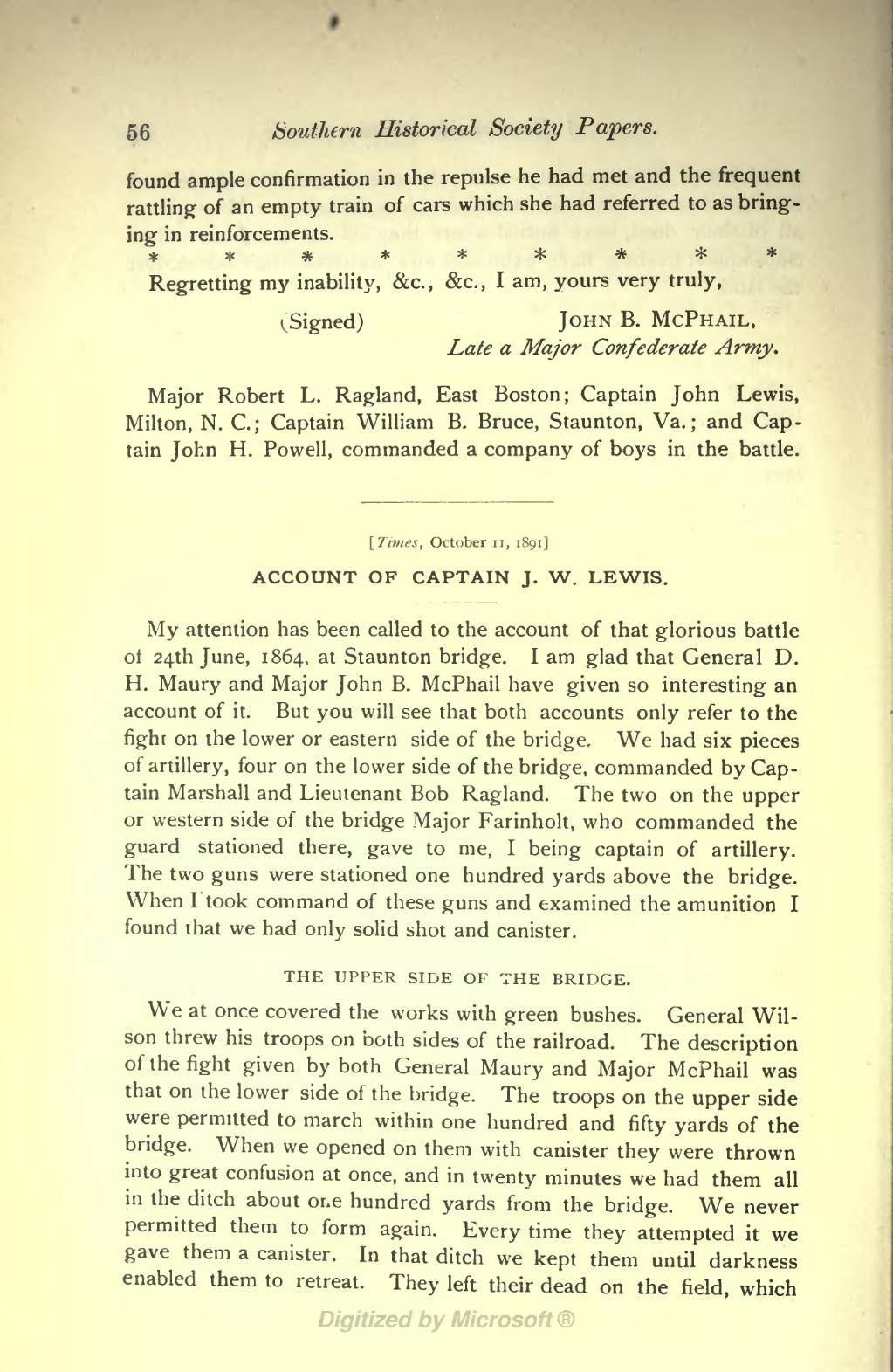56 Southern Historical Society Papers.
found ample confirmation in the repulse he had met and the frequent rattling of an empty train of cars which she had referred to as bring- ing in reinforcements.
- ***
Regretting my inability, &c., &C M I am, yours very truly,
^Signed) JOHN B. McPHAiL,
Late a Major Confederate Army.
Major Robert L. Ragland, East Boston; Captain John Lewis, Milton, N. C.; Captain William B. Bruce, Staunton, Va. ; and Cap- tain John H. Powell, commanded a company of boys in the battle.
[Times, October u, 1891] ACCOUNT OF CAPTAIN J. W. LEWIS.
My attention has been called to the account of that glorious battle ol 24th June, 1864, at Staunton bridge. I am glad that General D. H. Maury and Major John B. McPhail have given so interesting an account of it. But you will see that both accounts only refer to the fighr on the lower or eastern side of the bridge. We had six pieces of artillery, four on the lower side of the bridge, commanded by Cap- tain Marshall and Lieutenant Bob Ragland. The two on the upper or western side of the bridge Major Farinholt, who commanded the guard stationed there, gave to me, I being captain of artillery. The two guns were stationed one hundred yards above the bridge. When I'took command of these guns and examined the amunition I found that we had only solid shot and canister.
THE UPPER SIDE OF THE BRIDGE.
We at once covered the works with green bushes. General Wil- son threw his troops on both sides of the railroad. The description of the fight given by both General Maury and Major McPhail was that on the lower side of the bridge. The troops on the upper side were permitted to march within one hundred and fifty yards of the bridge. When we opened on them with canister they were thrown into great confusion at once, and in twenty minutes we had them all in the ditch about one hundred yards from the bridge. We never permitted them to form again. Every time they attempted it we gave them a canister. In that ditch we kept them until darkness enabled them to retreat. They left their dead on the field, which
